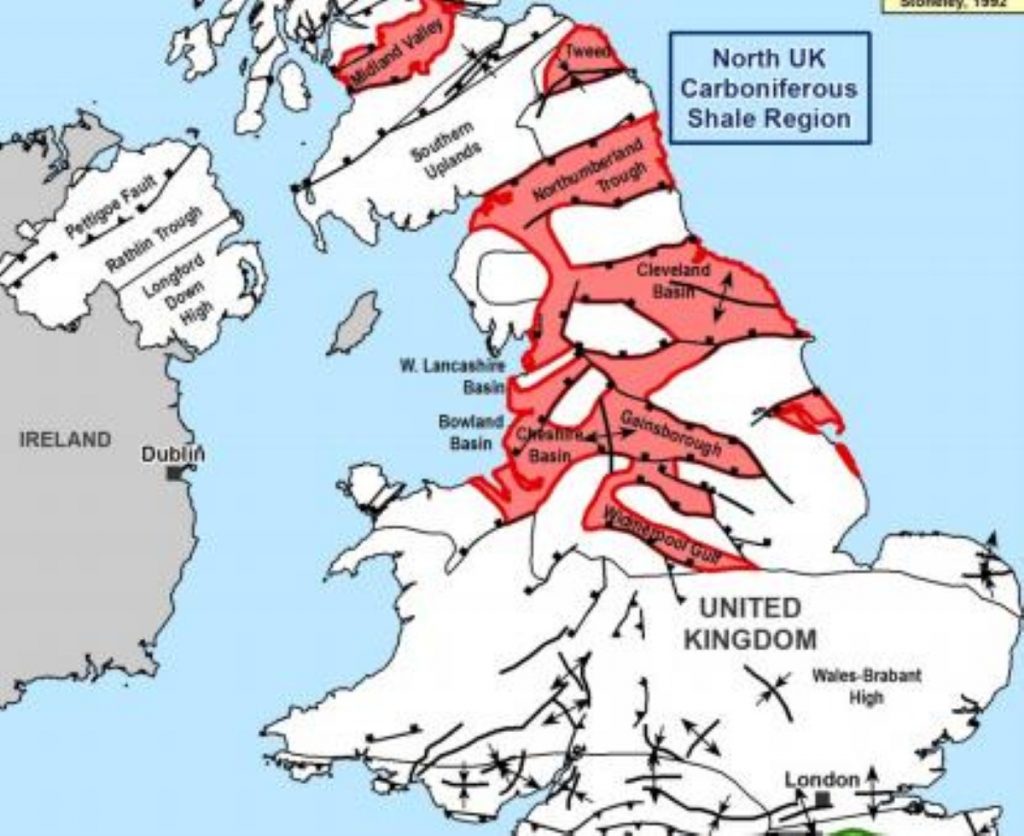Shale gas cash won’t all go to affected communities
By Alex Stevenson Follow @alex__stevenson and Ian Dunt Follow @IanDunt
Local residents affected by shale gas wells will see some of their cash payouts handed to county-wide bodies instead, it has been confirmed.
The government expected villagers whose environment is affected by shale gas drilling or the controversial 'fracking' process would not receive all the compensation funding.
Instead some of the compensating money could be spent on projects like the construction of a swimming pool in a nearby town, energy minister Michael Fallon told Politics.co.uk.


The move will trigger concerns that those directly affected triggered by fracking will lose out to councils who are absorbing the extra money amid shrinking funding from central government.
The confirmation came after an official report on shale gas in Lancashire and Yorkshire revealed Britain has far more of the resource than previously thought.
In the US, the discovery of high levels of shale gas has led to cheap natural gas for consumers – a situation UK ministers viewed with envy.
But there are substantial obstacles to extraction. The experimental wells drilled so far were quickly shut down after triggering earthquakes which alarmed local communities. Britain's complex geology and high population density present their own difficulties.
Any effort to extract the gas is also politically sensitive. House prices near extraction points are expected to fall substantially.
Shale industry insiders fear the biggest threat to their planned extraction of the reserves – which are likely to be a fraction of the total resource established by the BGS – lies in planning and developing problems.
The government has today published revised planning guidelines which Fallon told Politics.co.uk would make the process more straightforward.
"These projects must have permission locally – that's the great strength of the British planning system. What we've done today is to clarify the rules," he said.
"We've made them simpler and faster, so that everybody knows where they stand – both the developers and potential objectors."
Developers are basing their estimates on 100 sites with ten wells on each site. Shale gas firms will pay out up to £10 million per site, totalling an estimated £1.1 billion of community benefit.
This money is to be split into two pots: one focused on the local community and a second 'regional fund' which is expected to result in cash payouts to local authorities.
An extra £100,000 will be paid out for sites where hydraulic fracturing – the controversial process known as 'fracking' – takes place.
More detailed community incentives proposals are expected at the end of the year.
"There will be an element that is very local to the residents that are directly affected by the drilling," Fallon told Politics.co.uk.
"Some of it will be further afield – at county level, so it won't get swallowed up in the county council social services budget. It doesn't have to go to the county council, it doesn't have to go to a public authority.
"It's the balance we've got to get right. There may be a village that's affected by it but they may live close to a town that needs a new swimming pool which they'll use. There's got to be a balance there."
Politics.co.uk revealed earlier this week the plan is to pass some of the compensation to local councils rather than the communities themselves.
The British Geological Survey's central estimate is that there are 1,329 trillion cubic feet (tcf) in the Lancashire and Yorkshire region alone.
It says it is 80% certain the resource total lies somewhere between 828tcf and 2,281tcf.
"Today is the day that Britain gets serious about shale," Fallon told reporters at the Department for Energy and Climate Change press conference earlier.
"Given the scale of the potential, it would be irresponsible of us not to encourage its exploitation."
Shadow energy minister Tom Greatrex offered a cautious response to today's report.
"Only by fully addressing legitimate environmental and safety concerns about fracking with robust regulation and comprehensive monitoring, will people have confidence that the exploration and possible extraction of shale gas is a safe and reliable source that can contribute to the UK’s energy mix," he said.
"The government must get its priorities right. Announcing community benefits and tax breaks before we know how much shale gas is actually recoverable, or before anyone even has a licence to extract it, looks like a desperate attempt to draw attention away from the government's cuts to infrastructure investment."
The process involves blasting dense shale rocks deep underground at extremely high pressure to release tiny bubbles of methane. It can cause small tremors, has environmental repercussions and uses very high levels of fresh water.
Critics suggested the timing of today's report was delayed to put a 'good news spin' on the day after George Osborne's spending review.
Some industry insiders had suggested the nuclear strike price decision – the critical offer the government will make to EDF Energy before the final decision to invest at a new nuclear power station at Hinckley Point – has been delayed as ministers awaited the British Geological Survey's assessment of Britain's shale gas prospects.









